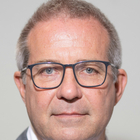The Current Column
Scant recognition
What future for the OECD’s Development Assistance Committee?
Klingebiel, StephanThe Current Column (2021)
Bonn: German Development Institute / Deutsches Institut für Entwicklungspolitik (DIE), The Current Column of 4 October 2021
In a sense, 1961 can be regarded as the “Big Bang” for international development policy. Under the shadow of the Cold War, the US was pushing an international system to support developing countries. US President John F. Kennedy pooled existing efforts to help developing nations into the mighty US Agency for International Development (USAID). In the same year, the German BMZ (initially “Bundesministerium für wirtschaftliche Zusammenarbeit”, or “Federal Ministry for Economic Cooperation”, then with the added suffix “und Entwicklung”, or “and Development”) was formed in the then West Germany as a dedicated ministry to support developing regions. 1961 also saw the Organisation for Economic Co-operation and Development (OECD) set up its Development Assistance Committee (DAC), whose 60th birthday is being celebrated this week.
Admittedly, the DAC is often seen as synonymous with the development cooperation practised by “traditional donors”: a rich nations’ club that was often a byword for the persistence of global inequalities. Yet the committee is also the place where crucial quality and other standards of development cooperation have been hammered out over the past 60 years. It was here that the concept of “official development assistance” (ODA) was born. Every member of the DAC is also regularly scrutinised for its adherence to the rules. Just like the PISA studies for education policy, these peer reviews serve both a disciplinary and a supportive purpose. No member country would want to be admonished for not keeping strictly enough to international agreements. Its growth from an initial membership of eight to the current thirty can also be chalked up as a success for the committee. Former developing countries such as Spain and South Korea regarded being accepted into this club as an important sign of their socio-economic progress. The German Development Institute / Deutsches Institut für Entwicklungspolitik (DIE) has published a new open-access book that gives full recognition to the DAC’s history.
It is hard to get a clearer idea of what exactly this committee’s future could and should look like. There are at least three key issues at play here. Firstly, rarely has the political context been evolving so fast. Many developing countries, from China and India through to Rwanda, are themselves providing development cooperation to other nations nowadays. Although not new, the concept of South-South cooperation is having a massive impact due to the sheer scope of the initiatives involved, particularly China’s. And most of these countries that are providing South-South cooperation have little interest in liaising with the DAC, reporting on ODA or promoting and supporting the standards developed on the DAC. The committee thus represents a shrinking percentage of the leading actors in development policy. Plus there is the fact that development policy is returning to its roots to a certain extent: geostrategic issues are currently becoming hugely important, particularly as far as China is concerned.
Secondly, political support for a DAC that is committed to effective development cooperation based as little as possible on short-term self-interests has waned significantly. Populist tactics from some DAC member states (e.g. the UK) and often tighter budgets have led to a loosening of the quality criteria – such as what can be reported as ODA.
Thirdly, the question of what development cooperation should look like in the future is both relevant and vague – and it is this question in particular that we are hoping the Paris-based club will answer. For instance, we can already foresee the number of developing countries (such as China and Turkey) falling further in the coming years, i.e. fewer countries being reliant on such a form of cooperation. “Graduating” eligibility for ODA in this way is conceivable for some developing countries, but not all of them. At the same time, the crises of past years in particular show that development policy is a crucial tool for tackling all kinds of global challenges, from the COVID-19 pandemic to problems of security policy – especially in Afghanistan – and increasingly for the causes and consequences of climate change as well. It is clear that, besides supporting development processes in individual countries, development policy will also play a much greater role in future in dealing with global crises and supplying global public goods.

